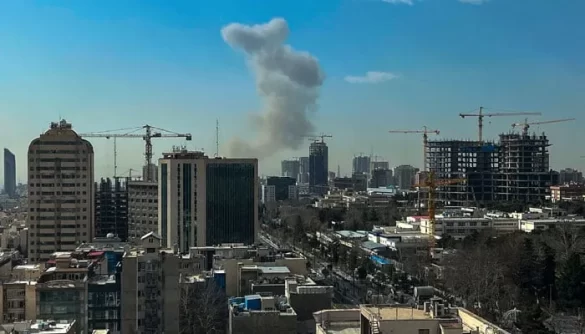Hamas Declares Disengagement from Future Gaza Government
Gaza City – In a significant political development, Hamas has announced that it will not participate in any upcoming governing structure in the Gaza Strip. The group also confirmed it will relinquish control over border crossings and the humanitarian aid system within the territory.
The announcement was made through a senior Hamas official, speaking to Arab media on condition of anonymity. The official emphasized that Hamas’s priorities lie with the protection of Palestinian civilians rather than holding power or controlling administrative mechanisms.
“We are not interested in ruling Gaza or managing crossings,” said the official. “Our focus remains resistance against Israeli aggression and defending the rights of the Palestinian people.”
This statement comes amid growing international pressure and discussions around forming a transitional or humanitarian administration in Gaza, as the territory faces an unprecedented humanitarian catastrophe due to ongoing Israeli military operations.
Humanitarian Crisis Deepens in Gaza
The announcement follows months of intensified Israeli bombardment of Gaza, which has devastated infrastructure, displaced over a million people, and caused severe shortages of food, water, and medical supplies.
According to the United Nations, over 35,000 Palestinians have been killed and tens of thousands more injured since the outbreak of the conflict in October 2023. Civilian infrastructure—including hospitals, schools, and residential areas—has been severely impacted, compounding the humanitarian crisis.
With large parts of the territory reduced to rubble and Gaza’s health system on the brink of collapse, humanitarian agencies have been calling for an internationally supported civil administration to manage aid distribution and facilitate recovery efforts.
A Strategic Shift Amid International Pressure
Hamas’s decision to step back from future governance is widely interpreted as a strategic response to both internal Palestinian divisions and increasing global scrutiny.
By distancing itself from political power and operational control, the group appears to be signaling its willingness to allow neutral entities or a technocratic administration to manage day-to-day affairs in Gaza—particularly as aid agencies and diplomatic actors push for a more stable and accountable governance model.
Analysts suggest this move is also aimed at reshaping Hamas’s international image. Historically regarded by Western governments as a militant organization, Hamas has long been accused of prioritizing control over Gaza at the expense of its residents’ welfare. Its latest announcement, however, may be an attempt to reposition itself solely as a resistance movement, rather than a governing authority.
Implications for Gaza’s Political Future
The long-term implications of this decision are still unfolding. If Hamas follows through on its pledge to withdraw from governance, it may open the door to new political arrangements in Gaza—including the potential involvement of the Palestinian Authority (PA), a UN-backed interim body, or even an international consortium.
However, the road to such a transition is far from clear. The PA, led by Mahmoud Abbas in the West Bank, has limited influence in Gaza and remains politically weakened. Meanwhile, any international or regional intervention would require complex negotiations and robust guarantees to ensure impartiality and local acceptance.
Furthermore, the absence of a governing authority with security capabilities could lead to a power vacuum, raising fears of chaos, lawlessness, or even new armed factions emerging in the fragile territory.
Growing Calls for a Ceasefire and Political Resolution
The timing of Hamas’s announcement coincides with mounting international calls for an immediate ceasefire, restoration of humanitarian aid, and a long-term political solution to the Israeli-Palestinian conflict.
The United States, European Union, and several Arab nations have all stressed the need for a post-conflict governance framework in Gaza that excludes militant groups and upholds international humanitarian law.
Despite the uncertainty ahead, Hamas’s withdrawal from governance responsibilities marks a critical juncture in Gaza’s political and humanitarian trajectory. Whether it paves the way for peace or introduces new complexities remains to be seen.
Visit News Alert Urdu for the Urdu translation.















